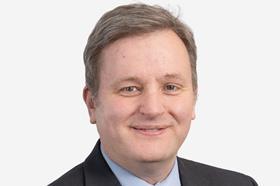The new Unified Patent Court (UPC) has been established to provide a forum for hearing disputes about unitary patents which provide patent protection encompassing 17 EU member states. In addition, the UPC has jurisdiction to enforce and revoke patents granted by the European Patent Office. Before the establishment of the UPC, enforcement of such patents could take place only on a country-by-country basis; one of the main rationales for the new court was to remove duplication of enforcement proceedings.

In the first few months of the court’s existence, filing figures at the UPC have been robust, with over 100 cases having already been filed at the court. In contrast, the volume of patent litigation in the English courts has been falling in recent years: 85 cases were filed with the Patents Court in 2017, but that number fell to only 35 last year. A similar number of cases are expected to be filed this year.
This puts patent solicitors in a quandary. Our Patents Court was a forum of choice for settling high-profile international patent disputes. Highly competent judges and rigorous testing of expert evidence through cross-examination made the English courts a preferred venue for challenging the validity of granted patents.
The UPC’s early success indicates that this primacy is likely to be challenged. The UPC’s rules of procedure were designed by cherry-picking the best aspects of English and European court litigation in order to make the court as suitable as possible for hearing patent disputes. Through greater emphasis on documentary evidence and a more targeted approach to cross-examination, the costs of litigation in the UPC are expected to be significantly lower than in the Patents Court. Moreover, the rules provide for a much stronger role for the presentation and challenge of expert evidence than is the case in the principal continental court systems.
One of the attractions of the UPC is that a significant proportion of litigation conducted there is expected to be in English. Actions to revoke a patent are required to be brought in the language in which a patent was prosecuted, which in around 80% of cases is English. Litigants normally have a choice of languages to use when enforcing a patent in the UPC, but in almost all cases litigating in English will be an option. In a recent case brought in the Dutch division of the UPC, the court acceded to a defendant’s request to change the language of proceedings from Dutch to English, on the grounds that this would be of assistance to a defendant based in Spain.
Unfortunately, most patent solicitors will be locked out of this new court system. The UPC only permits lawyers qualified in the EU to litigate before the court and requires them to hold EU nationality. Following Brexit, only a handful of English lawyers have the right to litigate in the new court, typically through a fortuitous combination of ancestry and cross-qualification as lawyers in Ireland.
The situation of English solicitors is in marked contrast to that of patent attorneys. Virtually all UK patent attorneys are qualified to act before the European Patent Office, an organisation based in Munich and The Hague that grants patents. Since this organisation was established under a treaty separate from the founding treaties of the EU, it has been unaffected by Brexit. Over 970 UK patent attorneys – representing about a third of patent attorneys based here – have registered to act before the UPC on the basis of rights to conduct litigation acquired pre-Brexit. Unlike lawyers appearing before the court, there is no requirement that attorneys must have EU nationality.
In the face of dwindling numbers of patent disputes in the Patents Court, this cadre of patent attorneys presents English patent solicitors with an opportunity. Historically, patent attorneys have only had a supporting role in English patent litigation, with almost all English based litigation being overseen by solicitors specialising in patent law. Patent attorneys have, however, long represented clients in opposition proceedings before the European Patent Office which enable third parties to challenge the grant of patents. Such opposition proceedings are heavily influenced by civil law approaches to litigation in Europe, and share many similarities with revocation proceedings before the UPC.
The challenge facing English patent litigators will be how to leverage this cadre of patent attorneys qualified to litigate in the UPC in order to capture a share of the UPC litigation market.
Nicholas Fox is a partner at Mathys & Squire LLP, London































No comments yet